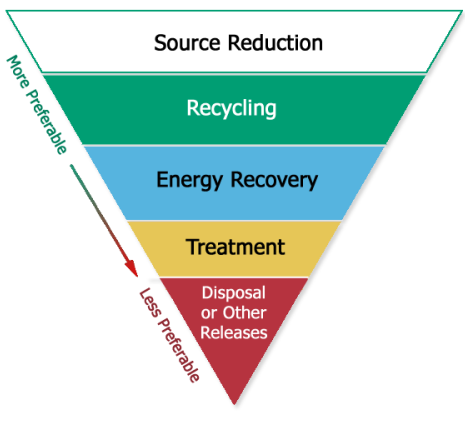The Waste Management Hierarchy
 |
The waste management hierarchy established by the Pollution Prevention Act (PPA) guides waste generators toward the best options for managing wastes.
The preferred option is to prevent pollution at its source, but for waste that is generated, the preferred management methods are recycling, followed
by burning for energy recovery, treatment and, as a last resort, disposing of the waste.
- Source Reduction includes activities that eliminate or reduce the generation of chemical waste.
- Recycling includes the recovery of a toxic chemical in waste for reuse.
- Energy Recovery includes the combustion of toxic chemicals in waste to generate heat or electricity.
- Treatment includes the destruction of a toxic chemical in waste.
- Disposal or Other Releases includes toxic chemical quantities entering the environment.
|
